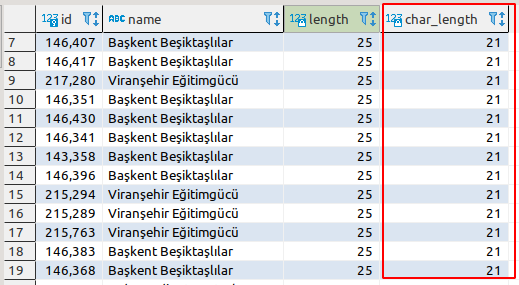I've a table contains the columns like
Prefix | CR
----------------------------------------
g | ;#WR_1;#WR_2;#WR_3;#WR_4;#
v | ;#WR_3;#WR_4;#
j | WR_2
m | WR_1
d | ;#WR_3;#WR_4;#
f9 | WR_3
I want to retrieve data from CR column WHERE it has the longest text string i.e in current table it is ;#WR_1;#WR_2;#WR_3;#WR_4;#. I'm using
SELECT max(len(CR)) AS Max_Length_String FROM table1
But it retuns
Max_Length_String
----------------------------------------
26
But what i need is not the length (26), i wanted like this
Max_Length_String
----------------------------------------
;#WR_1;#WR_2;#WR_3;#WR_4;#

